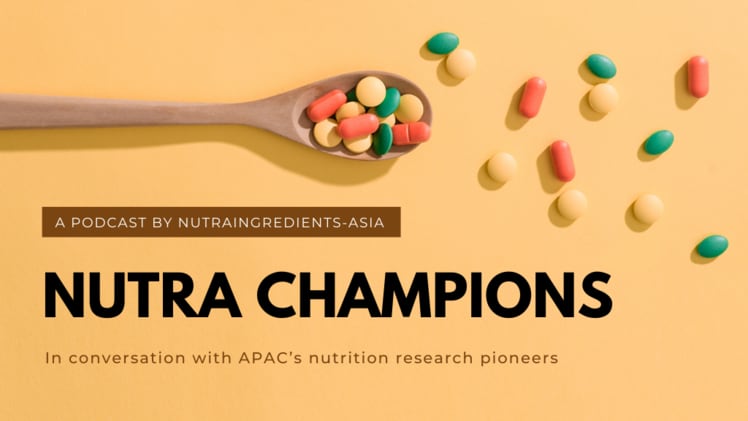The project is targeted at consolidating publicly available health and nutrition data of South Koreans so as to provide a standardised database for companies looking to provide personalised nutrition services.
Helming the project are Log(me) Inc – a spin-off from Ewha Womans University, microbiome start-up Human Effective Microbes Pharma (HEM Pharma), as well as Ehwa Womans University. They were selected by South Korea’s Ministry of Food and Drug Safety (MFDS) to oversee the project worth KRW$2.2bn (US$1.66m).
Log(me) Inc specialises in personal health condition diagnosis and customised food and nutrition service. Its CEO is Professor Oran Kwon from Ewha Womans University’s Department of Nutritional Science and Food Management.
HEM Pharma, on the other hand, has been working with Amway Korea in launching a precision probiotics service and probiotics under the brand ‘My Lab by Nutrilite’ since last year.
Speaking to NutraIngredients-Asia, Dr. Yosep Ji, CEO of HEM Pharma, said that personalised nutrition was seen as a “new rising star” in the health and nutrition sector.
“In Korea, we expect the personalised nutrition market to be a new rising star.
“Everyone sees a future in this market. But currently, I think it's the same for everyone, we don't know what to do about it,” he said.
It is precisely because of the apparent lack of knowledge that the government has launched this project to establish national guidelines for the industry, Dr. Ji said.
Dr. Ji is the co-principal investigator of the project together with the main principal investigator Prof Kwon and co-principal investigator Prof Han Young Ryoo from Ehwa Womans University’s Department of Content Convergence who specialises in user experience (UX) design.
The South Korean government has been building the country’s personalised nutrition market actively in recent years, such as launching a sandbox project in year 2020, where companies including Herbalife, Amway are allowed to open retail stores selling personalised nutrition products and services.
One of the major challenges seen in the personalised nutrition industry so far, is the absence of a standardised database.
“If every company starts to build their own database, then they will comprise only a few hundred databases and they will insist their value is the normal, standard level.
“So even though we are looking at the same bacteria in the faeces, but because companies are using different database, and therefore, if I were to engage this company, I might be considered perfectly normal, but through other companies, I might have a problem.
“That's why we need the guidelines and the standard values and public database, so every company can play by the same rules,” he said, adding that acquiring database has been an expensive task for smaller companies and start-ups.
The project will thus work to establish a sizeable database of reference values for healthy individuals in various health aspects.
It will also set the guidelines on the appropriate recommendation for specific dietary supplement according to gender or age groups as per request from the MFDS.
The project stages
The five-year project will consist of a few stages, starting with gathering data on the health status of the Korean population, the types of personalised nutrition services offered around the world, before establishing an algorithm for making health diagnosis and nutrition recommendation.
“In the two years, we will analyse the different information and crunch data on the personalisation services provided in South Korea or the other countries, so we will look at what kind of information of consumers are collected and what kind of product services are provided around the world.
“In addition, we will look at the public database for information [on South Korean’s health data],” said Dr Kim Youjin, CTO of Log(me).
For instance, the project will look at publicly available epidemiology studies, anthropometric data, and even dietary intake of South Koreans from the Korea National Health and Nutrition Examination Survey (KNHANES).
“We will gather the information and use it to develop an algorithm for differentiating people from each other in terms of their health status, and which health supplements need to be recommended,” she said, which would be conducted in the third and fourth year of the project.
“In the fifth year, we will run test reports on the algorithm, then we will make some educational content or promotional content for consumers, for the industry and also develop an open platform database for doing this.”
Asked how companies could differentiate themselves since they would be using the same set of databases to make the health diagnosis, Dr Kim said one differentiating factor could laid in the types of supplements provided and the types of health areas that a company was focusing on.
Personalised nutrition the remaining breakthrough?
Dr. Ji believes that personalised nutrition would be the next breakthrough in nutrition sciences because of the trend towards personalisation and the motivation to become healthier.
“Nowadays you can watch whatever you want from Youtube, not only programs that are broadcasted on TV. Everyone wants to have their own preference and it's the same for health.
“To be honest, everyone is already very healthy as compared to the last few decades. People just want to be healthier and now companies are trying to find the breakthrough in achieving that.”
Another reason for the growth in personalised nutrition is because companies are seeking new ways to stand out from intense market competition.
“There is already an overflow of chemical drugs, supplements or any other natural supplements to support health in the market.
“Maybe the next step is to provide a new paradigm, which is personalised nutrition. In my opinion, I think that's where companies are going and that will be the remaining breakthrough to provide even healthier life for people.”





